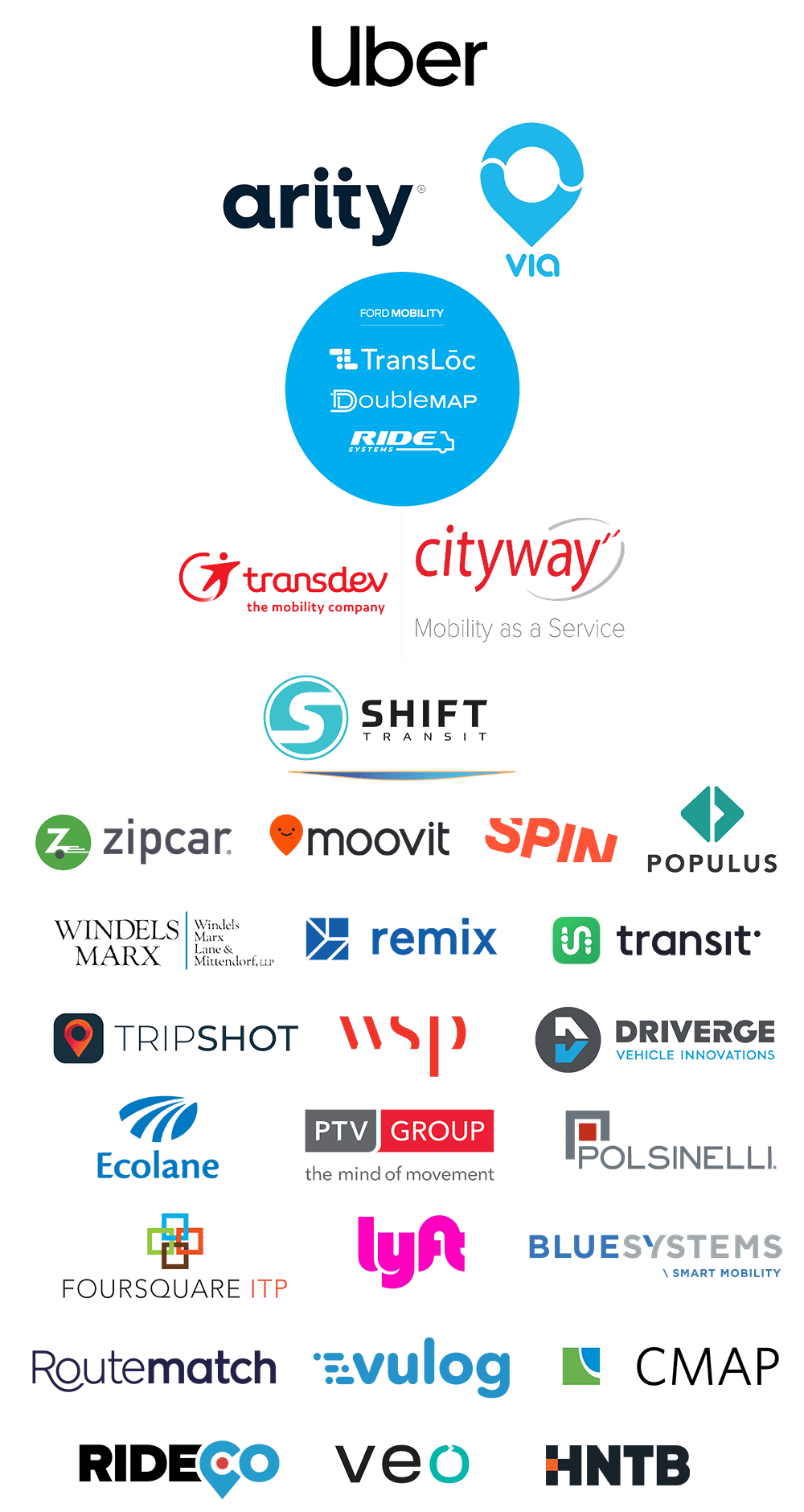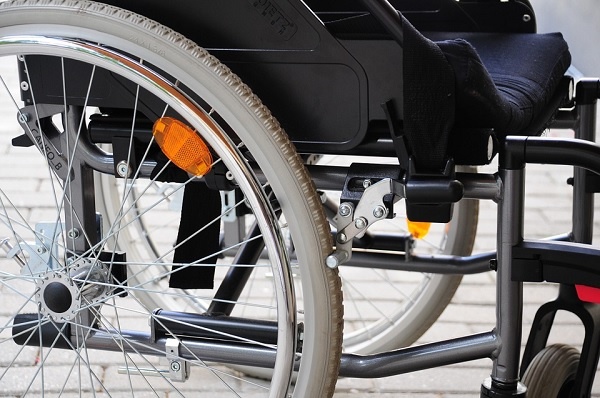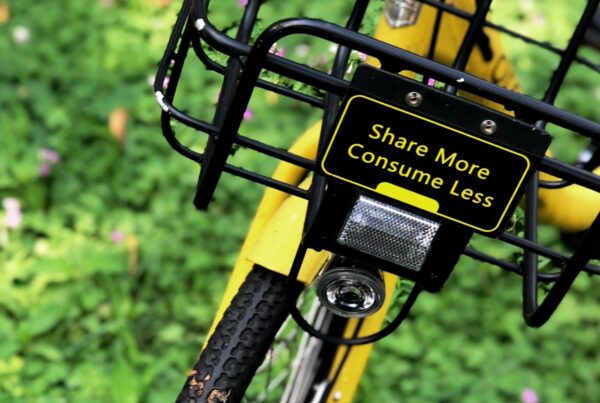Welcome to the Shared-Use Mobility Center’s weekly guide to the most impactful news, thought-provoking articles and innovative technologies that are shaping our transportation future. We believe in sharing information, just like sharing cars, bikes, and scooters, so if there’s anything additional you’d like to see, just drop us a line.
SUMC News and Announcements
Only a few spots left in the Human Services Transportation Workshop!
Free Virtual Panel and Workshop
Human Services Transportation:
Making Mobility as a Service Universal
Thursday, June 4 | 1:00 pm – 3:00 pm CDT
Join us for a free workshop to discuss Human Services Transportation and Universal Mobility.
Date: Thursday, June 4th
Time: 11:00 – 1:00 PT / 12:00 – 2:00 MT / 1:00 – 3:00 CT / 2:00 – 4:00 ET
This panel discussion will look at opportunities for data integration around human service transportation and larger Mobility Management and Mobility as a Service (MaaS) initiatives. From policy to practice, experts in the field will discuss the needs, opportunities, and strategies for creating an integrated mobility system that connects human service transportation to public transit. Following the plenary discussion, attendees will have the opportunity to discuss policy strategies that could be adopted at either a city, state, or federal level to encourage data sharing and integration across public and private sectors. Please email [email protected] with any questions.
Panelists Include:

NEW on the MOD Learning Center:
Third Installment of the May 2020 COVID-19 Crisis Impact on Transit & Shared Mobility
Our latest case study status update focuses on recovery. Read how Public Transit, Micromobility, TNCs and Carsharing, Autonomous Vehicles, and Paratransit are using newly-minted best practices to adapt services to meet social distancing and sanitary regulations while taking action to move turnstiles, ensure bookings, maintain operations and meet their bottom line as the country reopens.
This is the third installment of SUMC’s ongoing effort to explore how cities and transportation sectors are impacted by the novel COVID-19 coronavirus. The first status update, published April 8th, 2020, highlighted some of the ways public agencies and shared mobility operators responded to the initial weeks of the outbreak. The second update, published April 23rd, was organized by mode and explored the trends that emerged through the month of April, when most stay-at-home orders were in effect and cities established more comprehensive plans to address the crisis.
The Shared-Use Mobility Center joins other Chicago transportation and equity organizations in efforts to keep transit cuts from widening existing racial and disability divides
A coalition that includes the Active Transportation Alliance, the Center for Neighborhood Technology, and the Metropolitan Planning Council, sent a four-page letter to the Regional Transportation Authority, the Chicago Transit Authority, Pace, and Metra calling for transparency and community engagement in shaping routes, that transit be categorized as an essential public good, increased accessibility for riders with disabilities, increased coronavirus testing and adequate personal protective equipment for front-line transit workers, and reformed fare policies, including subsidies for low-income riders. Read more in this article from the Energy News Network.
Ridehailing/Carsharing/Carpooling
In a move to reduce harmful GHG emissions from light-duty vehicles, which amount to 1% of the State’s GHG emissions in total, California will require Uber and Lyft to offer more electric cars to ridehail customers.
The widespread lockdown has kept ridehail apps quiet, with human consequences. NPR reports 3,000 layoffs at Uber.
Take a look at the post-coronavirus future with Via in this article from Forbes that highlights the ways the company is working with public transit worldwide.
Partnerships and Programs
The City of Miami and DHL have partnered up to pilot e-assist cargo bikes in the city to help reduce pickup and delivery emissions. Three cheers for sustainable delivery.
LA Metro will now be using Transit, the trip-planning and mobility app, as the agency’s official app for public transportation information and wayfinding as part of a new collaboration.
London Mayor Sadiq Khan, along with Transport for London, has announced a new plan to transform parts of the city center into “one of the largest car-free zones in any capital city in the world” in a bid to increase biking and walking while maintaining social distancing measures.
Stagecoach and ViaVan (Via’s microtransit offshoot with Mercedes-Benz) have launched a new demand-responsive transport service exclusively for essential National Health Service workers in the UK to offer safe, flexible, and efficient mobility to and from hospitals.
Bikesharing and Micromobility
As the world restructures transportation to maintain social distancing during the ongoing pandemic, the rising interest in bikes and e-scooters shows the potential that micromobility and active transportation has at making up for recent transit cuts in many cities.
Mobility data startup Fluctuo looks at six strategies that operators and cities can follow “to build resilient shared mobility solutions for the near future.” Check them out on Medium.
A new study out of the University of Washington shows that in US cities with bikeshare systems, bike commuting rates have increased by as much as 20% during the past decade.
A virtual valet, but for shared scooters! As part of an Atlanta pilot, teleoperators can remotely control a dockless, shared scooter to you for pickup and from your destination point after your trip. The pilot is a collaboration between EV scooter-sharing startup GoX, micromobility tech company Tortoise, and local tech incubator Curiosity Labs.
Transit
Public transit has seen a radical change in ridership, operations, and safety measures in the US since the beginning of the COVID-19 crisis. Now, agencies are struggling to maintain functional systems while keeping riders six feet apart.
Even in these troubling times, Cincinnati voters have opted for two new tax levies that will use a large portion of the estimated $130 million a year in revenue to expand public transit options in the area.
Pedestrian Observations digs into the effectiveness of reducing the spread of coronavirus on public transportation through social distancing and how other cities have tackled this issue through more practical measures such as mandatory face masks.
The fight against the worldwide pandemic and climate change has one key solution that, even in it’s current state, still stands a chance to turn the tables for the better: public transportation. Read more about the future of transit and what it means for the environment on Railway Age.
Technology
Who has the right to know how transportation data is obtained, used, and shared? As the battle rages on between municipalities, mobility startups, and data-privacy advocates, Greater Greater Washington surveys the scene.
Autonomous vehicle deployments and services are being used to transport medical supplies and deliver food to essential healthcare workers, and the public, in China as COVID-19 lockdown restrictions are eased. Read more on MIT Technology Review.
A new tool for Series-ER-equipped, hybrid-electric, transit buses has been developed, as part of a collaboration between EV solutions platform ViriCiti and BAE Systems, to auto-switch the bus’ engine on or off based on predefined, geofenced areas. Why? To help reduce air pollution while extending electric travel time.
A big milestone for EV charging: Wenatchee, WA’s Link Transit has successfully hit a milestone of 50 megawatt-hours of wireless energy delivered for its electric bus fleet, making it the first EV bus operator in the Americas to do so and the first in the world to do it in under two years.
Urban Sustainability
The recent short-term drop in CO2 emissions can be partially attributed to the decrease in surface-level transportation that stems from the COVID-19 pandemic. This temporary drop, however, could have lasting effects on the way we structure our cities for crises, sustainability, and climate change.
Chicago active transportation advocate and Streetsblog Chicago Editor John Greenfield pens a letter to Crain’s emphasizing the necessity of more pedestrian and cycling infrastructure and how better active mobility options are far from “hard-to-justify”.
Check out the latest Streetfilms video that advocates for opens streets in all cities to help keep restaurants afloat with outdoor dining areas, reclaiming spaces for people to foster more vibrant communities in these troubling times.
Even with traffic down across the world as people follow stay-at-home orders, ground-level ozone (aka smog) levels have barely decreased compared to the last several years, reports NPR. The culprits: diesel trucks, factories, and power plants.
Requests for Proposals, Inquiries, and Information
Clean Mobility Options Now Accepting Applications
California’s Clean Mobility Options Voucher Pilot Program is accepting applications for Community Transportation Needs Assessment (Needs Assessment) Vouchers starting June 1, 2020. Needs Assessments Vouchers (~$50K) help evaluate community mobility needs and may be used to prepare for a future Mobility Project Voucher application (~$1M; application opening Fall 2020). Eligible applicants include CA nonprofits, agencies, and tribal communities. Learn more and start your application here.
RFP: Proponents for the Maryland Parkway Bus Rapid Transit
Regional Transportation Commission of Southern Nevada
Las Vegas, Nevada
Deadline: June 9, 2020
RFP: Request for Proposals for Paratransit Services
Green Mountain Transit Authority
St. Albans, VT
Deadline: June 17, 2020
Email Matt Kimball for RFP at [email protected]
RFI: Transit Technology Assistance
Oregon Department of Transportation
Salem, Oregon
Deadline: July 1, 2020
We’d like to thank the following sponsors for their support of the 2020 National Shared Mobility Summit.
 Did someone forward this to you? You can sign up for our newsletter here.
Did someone forward this to you? You can sign up for our newsletter here.





